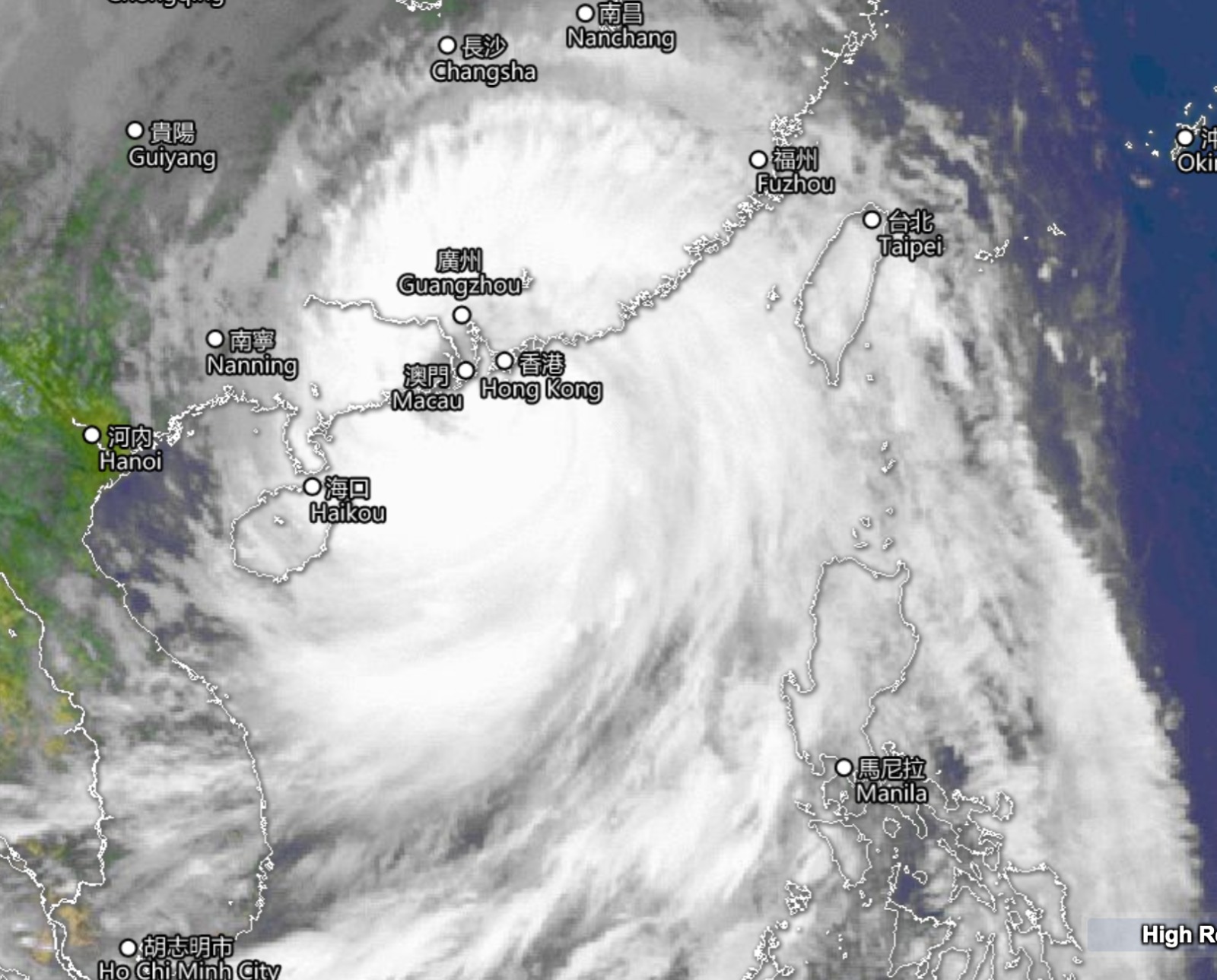Mangkhut : A Deceiving Name for a Fury of Nature
Shek O
It is quite ironic that the Super Typhoon that is now battering Hong Kong bears the name of a tropical fruit. Mangkhut means ‘mangosteen’, in Thai. This fruit has a deep reddish-purple coloured rind that hides soft, sweet and juicy white vesicles. It’s a delightful promise sheltered by an inedible shell.
Typhoon Mangkhut, instead, did not promise anything good, being one of the strongest typhoons recorded in the territory. After wracking havoc in the Philippines (where thirty people died), it is discharging all its mighty force over our city.
On the web, the progress of Mangkhut is being recorded, filmed and is readily available to all, like all calamities and sensational news. Videos of high-rise buildings’ windows blowing up started circulating immediately. Papers and various objects flew around: lost possessions that will never be recovered.
Rivers of water flooded the streets in areas closer to the sea, and engulfed the piers. Cranes fell from roofs, pieces of old buildings collapsed, skyscrapers swayed. Some careless people, who adventured outdoors, got carried away by the mighty winds.
My windows overlook the greenery, and I see trees bent by the force of the winds, waves of a green ocean that move right to left, left to right, as they are battered by the rain. Suddenly, a white fog covers all, and the green patch disappears: it’s a curtain of strong gusts mixed with pelting rain, branches and leaves. It feels surreal. The noise of the whistling wind is amplified, the windows shake, and my cat hides under the coffee table. It lasts for only a few seconds but it’s quite scary. After a few moments of deceiving quiet, the fog comes back, covers everything once more and the wind starts blowing all over again with all its might.
I hear noises, not all of them easy to identify. Half of a tree fell and now rests on the grass of the back garden area, defeated. In the front garden, a lamppost subsided to the gusts of winds and lies on the ground. Metallic dins make me imagine TV antennas flying away or objects hitting the balcony rails.
I get closer to the window. Pearls of water deform my vision, but I do not really need to see. What I hear is enough.
Hopefully soon, the worst of Mangkhut should be over. It will. And tomorrow we’ll be able to have a full picture of the aftermath. In the meantime, we are bewildered by Nature’s fury, and we (still) wonder if humans are to blame for the devastation caused by these natural disasters. We should know the answer.


